From calling Adam Lambert “too faggy” to being a part of the nation’s only sexuality rights festival – one former borderline bigot writes about her journey towards becoming a Rainbow Warrior.
Sunday November 14, 2010
A place to call home
By ONG JO-LENE
A first-timer at Seksualiti Merdeka shares her experience as a volunteer and her journey towards becoming a Rainbow Warrior.
I REMEMBER cracking a joke last year about Adam Lambert being “too faggy” to deserve to win American Idol. Last month, however, in the very same week the reality TV contest runner-up came to perform in Kuala Lumpur, I found myself at another concert called Rainbow Massacre: We Are Family!, applauding a seven-foot tall drag queen named Shelah.
The Amazonian goddess brought the house down when she quipped, “I know you all want to see Adam Lambert, but there is only one pondan here tonight …”
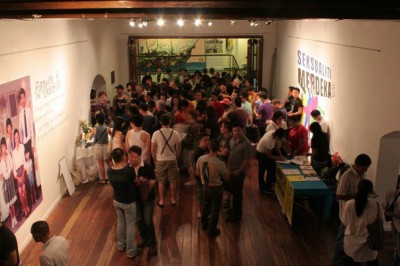
Jokes and words are only hurtful and insensitive when we use them with discriminatory and abusive intent. And yes, the LGBT (lesbian, gay, bisexual and transgender) community has reclaimed the words “pondan” and “queer” so we can now use them without fear of being slapped by a rainbow.
Shelah’s message of acceptance and sexual diversity was that we are all winners anyway, no matter what others think. So how did a borderline bigot end up as a volunteer at Seksualiti Merdeka, the country’s only sexuality rights festival (held at The Annexe Gallery, KL, from Oct 13-17)?
I responded to the call for volunteers for an art project through its Facebook page because it seemed like fun. I admit that while I’ve always believed in equality and non-discrimination, I wasn’t always sensitised to the rights and feelings of this community.
I was quite ignorant about LGBTs and sexuality rights. It was only after spending many weeks with my sisters and brothers workshopping, talking and listening as we planned the art project that I got an understanding of their struggles. I now realise we are all human beings, born with different strokes but the same inalienable rights.
Thus, I began my journey as a Rainbow Warrior when I was greeted with open arms at Seksualiti Merdeka. All it took on my part were open ears, mind, and heart.
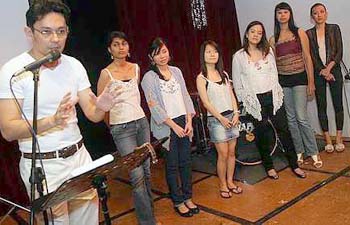
Into its third year, this project plays an important role in promoting understanding and acceptance of our diversity by society. It advocates our right to be responsible for our own bodies, and that it is our responsibility to safeguard our rights.
If you are hyperventilating at the thought that I was joining a celebration of sex, let me stop you here: the project is not called “seks merdeka“. It’s Seksualiti Merdeka, meaning independence of sexuality.
Sexuality emcompasses more than sexual acts. Gay, straight or in between, everyone is entitled to sexuality rights, which are not always recognised by society and the law. We should be able to responsibly exercise and express our own sexuality with freedom from stigma, discrimination, violence, persecution, and abuse.
Sexuality rights involve international human rights law being applied in areas relating to sexual orientation and gender identity, as outlined under the Yogyakarta Principles.
Seksualiti Merdeka‘s success in promoting these rights can be seen from the support it receives from bodies such as the United Nations, Amnesty International, PT Foundation, Suaram, Empower and the Bar Council Malaysia.
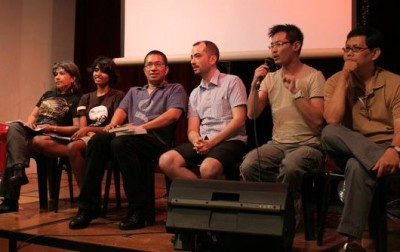
Unfortunately, many in Malaysia still do not think of sexuality rights and LGBT rights as human rights. As pointed out by Dr Azrul Mohd Khalib, the UN HIV and AIDS Coordinator, in his speech at this year’s launch, “Very often, the champions of human rights in Malaysia are silent or perceived to be less enthusiastic when it comes to the rights of such marginalised communities.”
I often read comments about how the LGBT community cannot simply claim the right to lead a lifestyle that is against the order of nature. If you had attended the series of presentations called “Even Educated Fleas Do It: Sex, Sexuality and Diversity in Malaysia” (on the last day of the festival), you would know that nature abounds with examples of same-sex behaviour and even sex changes, all naturally occurring in nature.
Furthermore, when it comes to those complex creatures known as human beings, what is “natural” to you may not be so to others. As organising chair and co-founder Pang Khee Teik has said, “the personal nature of any individual should not be mistaken for the collective nature of society”.
The festival’s activities bridge communities by broaching “hot button” topics through accessible, interactive and entertaining mediums such as movies (Queer As Films: Focus On Our Family was screened) and interactive forum theatre (Family Outing), which presented a coming-out scenario to university students, many of whom were able to offer interesting and candid suggestions on ways a gay son could come out to his mother.
The project I took part in, called Portraits of the Unspoken, showed the five participants with their statements, as well as a second installation that allowed the public to share their sentiments.
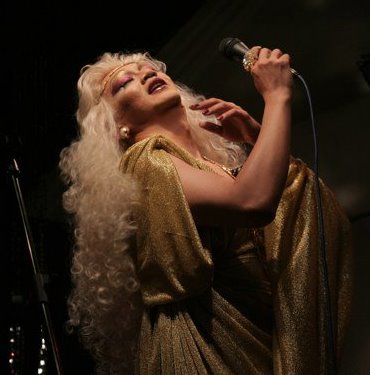
Farish Noor’s lecture entitled From Modesty Plates to Peranakan Lingerie: A Short History of Modesty in South-East Asia gave me a historical perspective of how our “values” are socially constructed and have evolved over time.
I also got an education on basic concepts in sexuality from sexuality rights activist and feminist Angela Kuga Thas. Learning about basic concepts helped me make sense of all the jargon – lesbian, gay, bisexual, transgender, transsexual, transvestite, drag-queen, butch, femme, etc.
As I learnt more about our diversity, I realised that we are not that different underneath it all – no matter what we are naturally inclined to like, who we see ourselves as, and how we choose to express our identity. We all want independence and equality.
This really hit home when gender studies researcher and activist Thilaga Sulathireh presented actual case studies of fellow Malaysians who were persecuted and punished for expressing and embracing their sexuality; the core of their very being.
The event ended with a bang with Rainbow Massacre, which featured performers such as Tony Eusoff singing Get Up, Stand Up, Nikki Palikat singing Defying Gravity, and Aaron Khaled singing a Susan Boyle cover, Proud: “Please don’t shoot me down, though you can’t see it now, someday I’ll make you proud.”
It is truly amazing that these beautiful people have taught me family values and inspired me to be a better person, even if they had themselves been treated with utter inconsideration by many others to their human dignity, suffered harassment in public places, been accused of breaking up families and not having “good moral values” all because they proudly embrace their true selves.
To me, supporting Seksualiti Merdeka simply means believing that we should be able to embrace our true selves, even if the gender we identify with does not match the sex organs we are born with, that we should be able to love who we want to love so long as it’s between consensual adults, and that we should all be able to freely and responsibly express our sexuality.
At Seksualiti Merdeka, I found another place to call home: no one to call me a “freak” because all of us here have at some point or another been labelled a “freak”, and hey, we are all a little freaky inside anyway, and it’s okay.
I hope to see you at next year’s event. All you need to bring is an open mind and a little bit of heart.
Ong Jo-Lene is working on the˜Stop Motion Project’, which aims to end violence against women. The project, supported by Empower, will be launched next February. The freelance writer spends her free time being mind-controlled by Lord Bobo on loyarburok.com.
She would like to thank Angela Kuga Thas, Pang Khee Teik, Jun Kit, Edwin Sumun, Hazri Haili, Jerome Kugan, Shieko, Temme, Thilaga, and Paik Yin for lending your shoulders, ears, and hands.
LB: This article originally published in The Star.
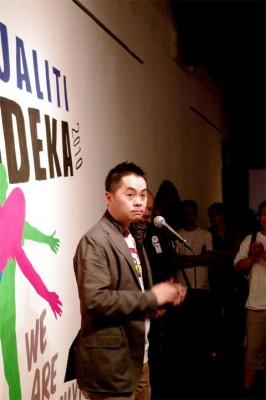
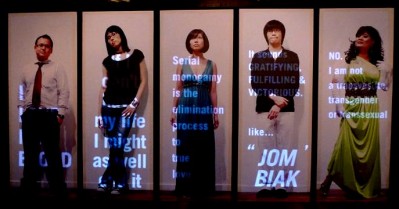
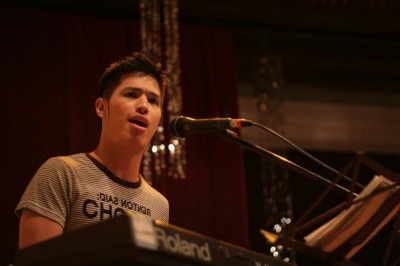
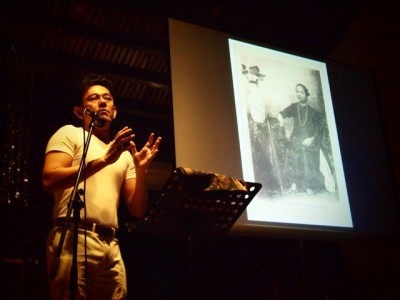

Is that why you like Jogyakarta? Very late to know.
from the star: http://thestar.com.my/lifestyle/story.asp?file=/2010/11/28/lifefocus/7508978&sec=lifefocus
TIME TO FACE TO ISSUE
I MUST thank StarMag for publishing the article titled A place to call home by Ong Jo-Lene (Insight, Nov 14) detailing her experience at Seksualiti Merdeka, held at The Annexe Gallery, Kuala Lumpur, in October.
Having attended the event last year and this year, I have come out more enlightened and more educated about sexuality rights. I understand the festival is in its third year and has been a resounding success.
There should be more sexuality rights events to promote awareness of our rights concerning our own body. I wish other NGOs will organise more of them.
Evolution is an on-going process and society must evolve and come to terms with sexual equality, and understand that the LBGT (lesbian, bisexual, gay and transgender) community should not be discriminated against or marginalised.
LBGTs have struggled for a long time for acceptance, basic acknowledgment and their rights. Let’s face it: LBGTs are part of every society and we must never sweep this issue under the carpet.
It is sad that there were many protests before the recent Adam Lambert concert in KL, because of his sexual orientation.
To me Lambert’s sexual life is none of our concern. Having him here does not mean that we are promoting the idea of living as a gay. In my opinion, a person’s sexual orientation cannot be influenced because it is not a lifestyle issue, but one that concerns human nature.
Considering that many LBGTs choose to remain in the closet, I appreciate the article on Seksualiti Merdeka, an event that aims to create awareness on sexual orientation and gender rights, and the right to choose your orientation. I hope that one day, in my lifetime, our laws can be amended, especially Section 377 of the Penal Code, which criminalises “carnal intercourse against the order of nature” and 377A, which criminalises “gross indecency” between two males.
With that, I am proud to make a bold stand and announce that I am bisexual, in the hope that I will be accepted and not ridiculed or discriminated against.
Ng Shu Tsung
Kuala Lumpur